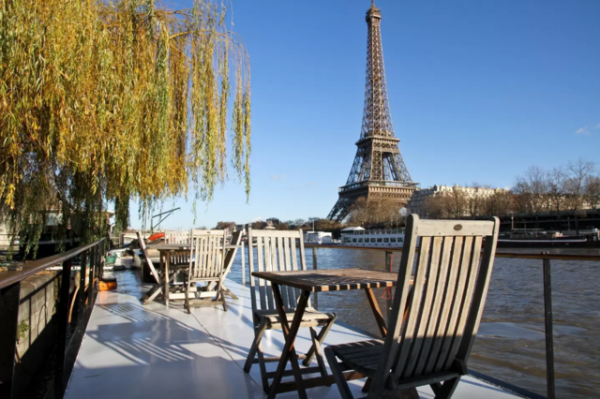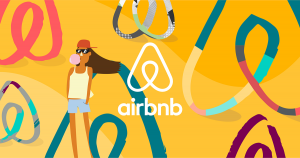With listings in 190 countries, Airbnb is the world’s largest community-driven hospitality company. Paris is its largest market with 50,000+ rentals listed. Because of this, guests are potentially spoiled for choice when it comes to finding the perfect apartment. But not so fast. Here an excerpt from contributor Michele Kurlander, a Chicago-based lawyer, provides tips and tricks for getting the most out of your Airbnb experience in the French capital.
I have had a love affair with Paris for a number of years, and when I visit, I like to experience the city as a resident not a tourist – not in a hotel but in my very own place; to leave my apartment and walk down cobblestone streets to find my morning coffee and croissant – or to purchase a morning newspaper and take it home with a fresh baked bread so I can read while drinking coffee brewed at home; to shop at local markets and to cook at home when I don’t feel like eating in a restaurant – or to wander down the street to a restaurant populated mostly by locals and have a refrigerator in which to keep leftovers (doggy bags have recently become ok in much of Paris).
I cannot afford to purchase one of the very expensive apartments springing up all over Paris, and I find professional rental agencies and their listings a bit impersonal.
Three years ago I found a solution – Airbnb, the worldwide matchmaking service between hosts and guests – still run from a SanFrancisco headquarters by the three entrepeneurial young men in San Francisco who invented the idea 7 years ago and who last year won Inc Magazine’s “2014 Company of the Year” award – and per the award announcement article in the magazine, were “guys with a website, three air mattresses, and ambitions that to many people sounded silly, naïve, and reckless” but “have revolutionized the way people think about travel, displaced the hospitality industry’s established players, and generated billions in revenue for themselves and their hosts.”
So how do you know what you are going to get or whether it will work out for you?
How do you know the difference before you arrive with your bags? And what if it is not what you expected, not just a little, but by a long shot?
This rental cost me $575 for 6 nights, and the other one $509 for the same period – a daily charge ranging from $85 to $96 per day (including the Airbnb “service” charge and, in one case, a “cleaning” fee).
In other words, renting small apartments in Paris through Airbnb doesn’t provide perfection, but if you do your homework and follow what I feel are some basic rules you can have the experience of living locally and comfortably at a truly budget price.
Here are the “rules” that I have developed, and which so far have served me well.
1. Carefully choose amenities and location details in your search.
On Airbnb’s site, you start with registering on the site, and for each individual search, you get to check details that you are looking for. You can specify such amenities as wifi, bathroom, kitchen, number of rooms, whether you need a separate bedroom, or more than one bed, an elevator, etc. You also can limit your search to certain neighborhoods.
Take your time and make sure before you start the search that you have carefully made your choices – but don’t get too picky or you may reduce your choices materially when some of the so called “amenities” are not absolutely necessary for your comfort. For example, consider climbing to a second or third floor or even higher since limiting to elevator buildings will seriously reduce your choices and increase your price.
2. Ask questions and fill in the blanks – including the location and neighborhood and internet and amenities.
I need to continue to practice law when in France, so for me a working and reliable wifi is critical. That means that I don’t just check the “amenity” box, but specifically ask the question. You get to have a dialogue with the host through the Airbnb site before finalizing your decision, and I ask a lot of questions to complete what I believe to be missing information.
3. Note how quickly the host responds as you dialogue on the Internet through the Airbnb site.
Try to talk to the host: First, if the host is non responsive or takes a very long time to answer questions, you can assume the same thing might occur after you move in so problems may remain unresolved. In this case, I will not opt for the place. Sometimes, I will try to discuss things before I have made a final decision. Since Airbnb does not disclose actual contact info, and trying to insert a telephone number or e mail address into the conversation results in the site blocking that part of the message, you need to get creative – one host and I shared our tel. numbers by doing it in three pieces. That was the case with my discussions re the missing microwave above. In other words, if you have some serious concerns, but are really close to opting for a place, at least try to talk to the host since not only can any remaining issues be cleared up on the phone, but I find also that I have a feel for who he or she is, and how responsive they are going to be.
4. Check the Reviews:
Guests are strongly encouraged by Airbnb to write and post reviews within 14 days of the end of the rental, and hosts are encouraged to review guests. I have always done my reviews, and in return I have had several hosts who have given me very positive ones. That does of course help in future rentals. More importantly, the best way to find out what the place and the host are really like is to read reviews. It was only through the reviews that I discovered that one possible rental was on a higher floor than I had assumed. Only once did I rent a place that did not have a number of posted reviews – and in that case, I had extensive conversations with the host and had him permit a friend of mine who lived nearby to come over and look at the place. That’s how important I think reviews are.
5. Make sure you understand all of the charges as well as the “refund policy”.
Don’t just look at the daily or weekly charge – but also look at add-ons. In each case, there is the Airbnb “service charge”. Some hosts require a refundable security deposit. Some require a cleaning charge (not refundable), and one required that I deposit a daily estimate for utilities, which was settled at move out and final reading of the meter. There are various refund policies – which you need to become familiar with since in many cases, you can change your mind and reverse the charge on your credit card until maybe a week or so before the date; in others you will lose some or all of what you paid if you cancel.
6. Make sure you contact the host way in advance to make the arrangements for your move in.
Airbnb will email you as a reminder, but nevertheless you and the host need to decide how and when you will meet – and whether at the apartment or elsewhere – so you can be let in, told the wifi and door codes, given a key, etc. I had to sit at the Contrescarpe having lunch and listening to a jazz band for a few hours between my two rentals this month because Host No. 1 needed me out by 11:00 am and Host No. 2 wouldn’t be done with the cleaning until almost 2:00 pm. Because I knew this in advance, I made arrangements to meet a friend there. In each case, I was met at the apartment – in the 2nd case I needed to text or call him since he told me he was not in the apartment but elsewhere in the building.
7. Finally – go onto the Airbnb site and read their terms of service and, most importantly, the rules regarding their Guest Refund Policy – a separate document.
I’m not saying that you need to read all 36 pages of the most recent Terms of Service, but skim it and it will really tell you what the deal is. More importantly – the guest refund policy (only 3 pages long) is where you can find the list of what is considered a “travel issue” (which includes a number of items, including whether the size and amenities are “materially inaccurate” compared to what has been promised).
It is important to know that per these terms, Airbnb is simply the provider of a “platform” where hosts can list facilities and guests can access the listings and communicate directly with the hosts and make their deal with the host, that Airbnb does not guarantee anything with respect to the host or the site, and is not a party to your agreement with the host, BUT that the hosts have to abide by certain rules, including the correctness of their listings AND Airbnb operates as a “limited payment collection agent” for the hosts – meaning (AND THIS IS IMPORTANT) that Airbnb takes your payment in the form of a credit card charge, via a related entity called “Airbnb payments” and it is Airbnb Payments that remits the money to the host – generally only after 24 hours after you enter the premises; that if there is a “travel issue” (you are not given access, or the place has a “material innacuracy”) you must tell Airbnb within that 24 hour period – they have a 24 /7 hotline – and the host promises to be available to you during that 24 hour period to try to resolve issues. If the issue is not resolved, then Airbnb has, under their “Guest Refund Policy”, the option to either cause you to be reimbursed, or to use reasonable efforts to find and book you another accomodation. ALSO, I READ RECENTLY THAT PEOPLE HAVE BEEN SCAMMED BY ALLEGED AIRBNB HOSTS INSISTING ON PAYMENTS BY WIRING OF FUNDS. Airbnb always takes your credit card – that is how they operate. Be wary of anyone asking for any other means of receiving your funds.
Read the full article at Bonjour Paris here.



